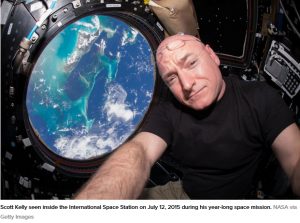Keeping Anxiety At Bay
In recent weeks, we’ve all seen or read about the rapid spread of COVID-19 and the tanking of the economy, the increased numbers of people who have tested positive for the disease, the rising death toll from coronavirus, and the huge numbers of people out of work.
I am, by nature, an optimist and I know from America’s heartiness that we will recover from this pandemic and its effects on our economy and employment.
But in the meantime, anxiety (which is hazardous to our physical and emotional health) is in full swing. I keep remembering this quote from Arthur Somers Roche:
“Anxiety is but a thin stream of fear trickling through the mind. If encouraged, it cuts a channel into which all other thoughts are drained.”
Anxiety is a future-oriented state of mind. It’s a feeling of fear or apprehension about what’s to come. Many questions about the virus and its implications remain unanswered, and may continue to be unanswered for weeks and possibly months ahead. Immediate challenges from the virus, such as fear of illness, or loss of work and income, bring stress which is compounded by worries about the future. Anxiety is a product of worrying about what’s next. And right now we simply don’t know what’s next.
So I’d like to share some advice from Scott Kelly, the astronaut who was isolated in the international space station for a year.
Follow a schedule
Creating and maintaining a daily plan that organizes your time will help you and your family adjust to a different work and home life environment. Particularly if you have school-age children, keeping a routine of study, no matter the content, will help fight boredom and anxiety.
Go outside
While it is essential that we avoid crowds and gatherings of more than 10 people, research has shown that spending time in nature is beneficial for our mental and physical health. Taking a walk outdoors can help lower anxiety while also giving you the chance for exercise. Even if you only step outside your front door, or stand on a balcony or patio, or open an apartment window, find ways to enjoy nature.
Read
Kelly remarked that people were surprised to learn he took books with him to space. The quiet and absorption you can find in a physical book — one that doesn’t ping you with notifications or tempt you to open a new tab — is priceless. Many small bookstores are currently offering curbside pickup or home delivery service, which means you can support a local business while also cultivating some much-needed unplugged time.
Renew a hobby
If you used to crochet or knit, or paint or draw, consider resuming that practice. You can also practice an instrument, try a craft, organize family photos, or make some art. Art projects are particularly helpful if you have young children at home.
Keep a journal
NASA has studied the effects of isolation on humans for decades, and one surprising finding they’ve made is the value of keeping a journal. During his yearlong mission, Kelly took the time to write about his experiences almost every day. If you find yourself just chronicling the days’ events (which, under the circumstances, might get repetitive) instead try describing what you are experiencing through your five senses or write about memories. Writing about your days will help put your experiences in perspective and let you look back later on what this unique time in history has meant.
If you are not familiar with journaling or its many benefits, find out why I keep a journal and if you would like to subscribe to my free 52-week Best Self Program to receive weekly journaling prompts, click here.
Breathe
When you feel anxious or under stress, it’s easy to breathe too much and end up hyperventilating, which does nothing to reduce your anxiety. When I find myself becoming anxious, like when I’m watching the news or reading the daily newspaper these days, I use the following breathing technique:
- Before I take a big breath in, I exhale deeply, pushing the air out of my lungs.
- I inhale for about 4 seconds. Then I exhale for six, making my exhale longer than my inhale.
- I repeat this for about 4 or 5 minutes.
Take time to connect
Scientists have shown that isolation can be damaging to your immune system. Our current technology gives us the chance to remain connected to friends and loved ones even as we keep a social distance. With Skype, FaceTime, Zoom, and our phones, it is easier than ever to keep in touch with at least someone every day. It’s worth making time daily to connect with someone — it might actually help you fight off viruses.
We are all in this together, since we’re all part of the interconnected web of life. And as we better manage our anxiety, we will be stronger and together pull us through this crisis.
Sarah Birnbach is a writer and author who shares the transformative power of journaling, providing encouragement and insights to help people on their journey to their “best self” and is the creator of the free Best Self Program.

